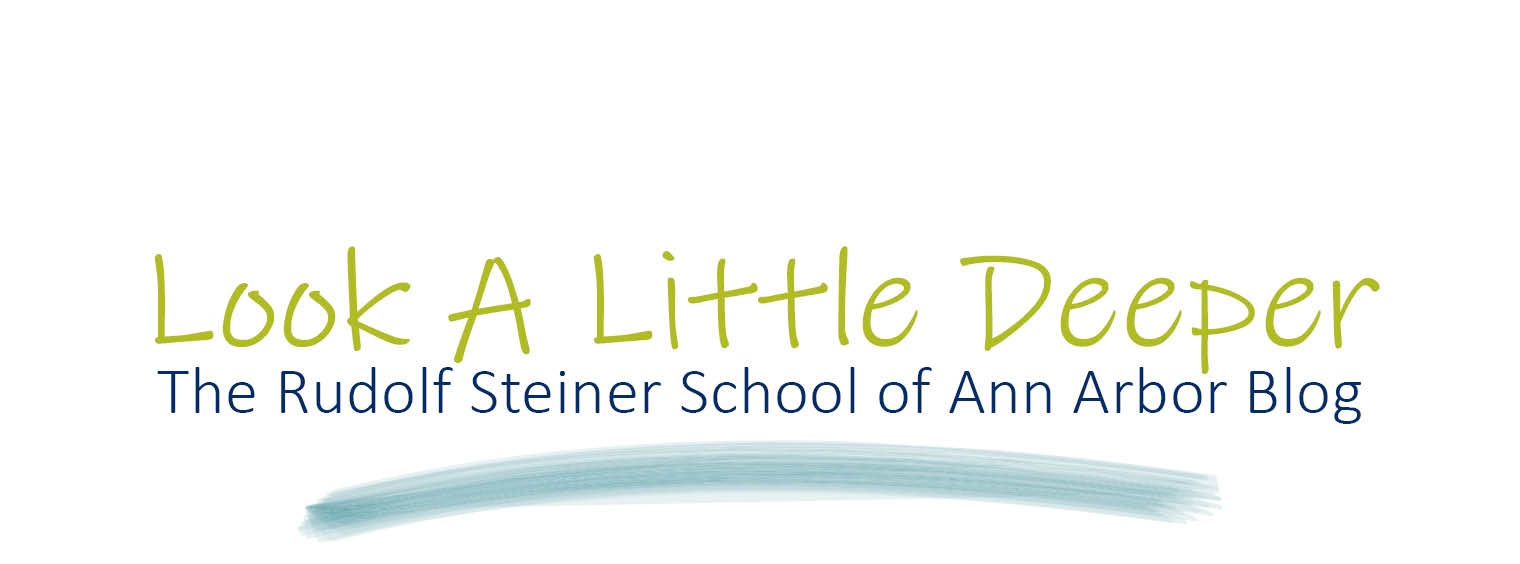

Waldorf Graduates Pursue Meaningful Careers

Will My Child Succeed After Waldorf High School? The Research Says Yes
Choosing a high school is a critical decision, and parents often wonder: Will this education prepare my child for college, career, and life?
For families considering Waldorf high schools, this question is especially relevant. With experiential learning, seminar-style discussions, and an interdisciplinary curriculum, can Waldorf truly equip students for fields like medicine, law, technology, and business?
Decades of research say yes.
Waldorf Graduates Excel in Higher Education and Careers
A 60-year study (Survey of Waldorf Graduates, Phase II, Mitchell & Gerwin, 2007) found that:
- 94% of Waldorf graduates attend college.
- 42% major in science-related fields—more than double the national average.
- Many earn advanced degrees in medicine, law, engineering, business, and the arts.
- Alumni thrive in fields ranging from finance and research to entrepreneurship and sustainability.
Waldorf Alumni Spotlight: Science in Action
After earning a degree in Earth Systems Engineering from the University of Michigan, Gavin Chensue ('06) joined the NOAA Commissioned Officer Corps, leading critical climate studies worldwide.
"Steiner education gave me a taste of everything. When I needed direction in college, I remembered how much I loved studying weather and geology—and that led me to where I am today." - Gavin Chensue (RSSAA '06), Research Engineer at SRI International, Former NOAA Corps Officer
His story highlights how Waldorf graduates succeed in STEM, combining curiosity and real-world problem-solving to make a global impact.
Read the full studies:
- Survey of Waldorf Graduates, Phase II: https://www.waldorfeducation.org/research
- Into the World Study: https://www.waldorfeducation.org/graduate-outcomes
What Makes a Waldorf Education So Effective?
Contrary to the belief that test-driven education leads to success, research shows that employers and universities highly value graduates who:
✔ Think critically and independently
✔ Communicate clearly and persuasively
✔ Collaborate effectively
✔ Solve complex problems
✔ Adapt to a changing world
These are precisely the skills Waldorf high schools cultivate.
1. Depth Over Memorization: Lifelong Knowledge Retention
Rather than rote memorization, Waldorf fosters deep understanding:
- History is explored through primary sources and narratives.
- Science emphasizes hands-on experiments and independent research.
- Mathematics focuses on real-world application.
- Literature and philosophy encourage analytical discussions.
One employer noted:
“Waldorf students don’t just look for the right answer—they explore the why and how behind complex issues.”
2. Seminar-Style Learning Develops Exceptional Communicators
Waldorf emphasizes oral presentations, debates, and collaborative discussions, preparing graduates for leadership roles in law, finance, business, and medicine.
Dr. Ilan Safit, co-author of *Into the World*, states:
“We consistently hear that Waldorf graduates excel at teamwork and leadership. Their ability to articulate complex ideas is a major asset.”
A study from Da Vinci Waldorf School found that Waldorf students select careers based on values and passion rather than prestige or income.
Final Thoughts: The Research Speaks for Itself
Professors and employers highlight Waldorf graduates’ intellectual curiosity and ability to think independently.
With strong college attendance rates, success across multiple professions, and the skills needed to navigate a complex world, one thing is clear:
Waldorf graduates don’t just succeed—they thrive.
Professors and employers highlight Waldorf graduates’ intellectual curiosity and ability to think independently.
With strong college attendance rates, success across multiple professions, and the skills needed to navigate a complex world, one thing is clear:
Waldorf graduates don’t just succeed—they thrive.
Read more on Waldorf Graduates
Selecting a High School

Selecting a High School
Advice from Veteran Waldorf Educators
Choosing the right high school can feel like one of the most significant decisions a family will make in their child’s educational journey.
To bring clarity to this decision, we turned to two of our most experienced educators at the Rudolf Steiner School of Ann Arbor: Margot Amrine, a longtime Waldorf teacher with over four decades of experience, and Dr. Siân Owen-Cruise, our former School Administrator, who has guided countless families through the high school selection process.
Today’s parents listen to and respect their children’s perspectives more than ever before- a positive shift in family dynamics. But as Margot reminds us, that doesn’t mean parents should surrender their leadership on big decisions.
“In our family we said that Waldorf Education for 9th and 10th grade was essential. At 11th grade, a different kind of maturity sets in; if our children had made compelling reasons to leave then, we would have considered. We never had these discussions!”
Dr. Owen-Cruise expands on this, acknowledging that social pressures play an outside role in an 8th Grader's thinking:
“It's natural for teenagers to focus on their peers and social dynamics when thinking about high school. As parents, we listen, we understand, and we take their feelings seriously- but ultimately, we need to lead this decision with wisdom and foresight.”
Dr. Owen-Cruise often frames the conversation with the rising student in the following way:
“Your parents will choose where you receive your high school education, with your input. YOU will choose where you go to college, with our parental input.”
Many families who have walked this path find that their children- whether they started in Waldorf Education or joined from another school-ultimately express gratitude that their parents guided this decision with their long-term development in mind.
Here are some other helpful tips and information when thinking about our own High School:
Waldorf Graduates Pursue Meaningful Careers
“Will My Child Succeed After Waldorf High School? The Research Says Yes” - Blog Article
Parents often ask: Does a Waldorf education prepare students for college, careers, and beyond? The answer is a resounding yes. Studies show that Waldorf graduates not only attend college at high rates but also excel in fields like science, medicine, law, and technology. Employers and universities consistently praise their ability to think critically, communicate effectively, and adapt to a changing world. Want to know why? This article dives into the research and real-world successes of our alumni.
The Joy of a Phone-Free School: How Our Students Thrive Without Screens
"The Joy of a Phone-Free School: How Our Students Thrive Without Screens" - Blog Article
In an age where screens dominate every aspect of life, imagine a school where students engage in real conversations, dive into hands-on projects, and focus fully in class—without the pull of notifications. Our phone-free policy isn’t just a rule; it’s a game-changer. See how it shapes our students’ social and academic lives!
The Joy of a Phone-Free School: How Our Students Thrive Without Screens

The Joy of a Phone-Free School: How Our Students Thrive Without Screens
Imagine a typical school day where students, between classes and during breaks, are glued to their smartphones—scrolling through social media, playing games, or texting. Conversations are sparse, eye contact is minimal, and the vibrant energy of youthful interaction seems subdued. Now, contrast this with a school environment where smartphones are set aside: students engage in lively face-to-face discussions, participate in spontaneous games, and immerse themselves fully in classroom activities without the constant pull of notifications. This is the reality we’ve cultivated at Rudolf Steiner School of Ann Arbor, embracing a phone-free policy that fosters genuine connections and holistic development.
The Deeper Engagement of Phone-Free Education
At our school, we’ve observed that removing smartphones from the school day does more than just eliminate distractions—it rekindles a deeper, more meaningful engagement among students. Freed from screens, students rediscover the joy of direct communication, collaborative problem-solving, and hands-on learning. This environment aligns seamlessly with the principles of Waldorf education, emphasizing experiential learning and nurturing the whole child.
We Are Phone-Free, Not Tech-Free
While our school maintains a phone-free environment during school hours, we are not devoid of technology. In fact, our curriculum incorporates technology in age-appropriate ways to ensure students are prepared for the digital world:
• Middle School: Students are introduced to computers and the internet in an intentional way that supports learning. Additionally, our middle school robotics club fosters interest in technology and engineering through hands-on projects. https://www.steinerschool.org/programs/extracurricular-activities.cfm
• High School: Our state-of-the-art computer lab facilitates courses in coding, digital literacy, and other computer science subjects. We also have an active high school robotics club where students collaborate on competitive projects that develop real-world problem-solving skills. https://www.steinerschool.org/about-us/waldorf-education.cfm
Many of our graduates go on to thrive in technology fields, excelling in computer science, engineering, and data analysis. Research shows that Waldorf graduates develop strong interdisciplinary thinking skills that prepare them for success in fields that require both creativity and technical expertise.
Leading the Way in Ann Arbor
Our commitment to a phone-free school day positions us as pioneers in the Ann Arbor educational community. While some other local schools have implemented partial restrictions, our comprehensive approach ensures that students remain unplugged throughout the day—including breaks and transitions between classes.
Several Ann Arbor schools are recognizing the value of limiting phone use:
• Forsythe Middle School and Tappan Middle School both require students to keep phones in lockers during school hours. https://forsythe.a2schools.org/our-school/cell-phone-policy, https://tappan.a2schools.org/our-school/cell-phone-policy
• Huron High School has introduced classroom phone storage policies in its Mathematics and English departments to help students stay focused. https://thehuronemery.com/9731/news/cell-phone-use-teacher-led-procedures-to-enrich-student-experience/
The Transformative Power of Disconnecting
The shift to a phone-free environment has yielded profound benefits:
• Enhanced Academic Focus: Without the allure of smartphones, students engage more deeply in lessons, leading to improved comprehension and retention.
• Strengthened Social Bonds: Face-to-face interactions during breaks and collaborative projects foster authentic relationships and empathy among students.
• Improved Mental Well-being: Reducing screen time has been linked to decreased anxiety and stress, allowing students to be more present and mindful.
Embracing a Connected Future Without Phones
As more schools recognize the value of limiting smartphone use, it’s evident that this movement is not about restricting technology but about reclaiming the essence of human connection and focused learning. By leading the way in this initiative, Rudolf Steiner School of Ann Arbor not only adheres to the foundational principles of Waldorf education but also prepares students for careers in STEM, the arts, and beyond.
We invite families seeking a nurturing, distraction-free educational environment to join us in this journey, where students can truly engage with the world around them and develop into well-rounded individuals.
Explore the experiences of other schools with phone-free policies:
• “New data reveals shocking trend since school mobile phone ban”
- “The big smartphone school experiment”
https://www.thetimes.co.uk/article/inside-schools-ban-smartphones-6knb8qtfc
- “Cell phones hinder classroom learning. Texas should tell school districts to lock them up”
- "Waldorf Schools are Media Literacy Role Models"
https://www.steinerschool.org/about-us/waldorf-schools-are-media-literacy-role-models/
The Value of an Unhurried Childhood
A recent New York Times article highlighted the importance of giving children an unhurried childhood, without an overpacked schedule of extracurricular activities and excessive homework. The pressure on Gen Z to excel at a young age has led to decreased mental health and increasing struggles at school. Waldorf Education takes a balanced approach, with plenty of time for children to play and explore, while also providing a joyful and well-rounded education that instills essential life skills, sparks a lifelong love of learning, and prepares them for a successful future.
This article was written by Shalini Shankar and originally published on July 9, 2021 in the New York Times
A Packed Schedule Doesn’t Really ‘Enrich’ Your Child
When the extracurricular-industrial complex came to a grinding halt last spring, parents were left scrambling to fill vast hours of unscheduled time. Some activities moved to remote instruction but most were canceled, and keeping children engaged became the bane of parents’ existence. Understandably, screens became default child care for younger kids and social lifelines for older ones.
As American society reopens, going back to our children’s prepandemic activities looks like an enticing way to reintroduce upper-elementary through high-school-age kids to the outside world. For parents with economic means, it’s tempting to return to a full slate of language classes, sports, music lessons and other extracurriculars — a guilt-free plan to keep kids busy with “enriching” activities while we get our jobs done.
But I suggest pausing before filling up their calendars again. We should not simply return children to their hectic prepandemic schedules.
Certainly, some amount of extracurricular activity can offer a welcome break from screens and help children nurture interests. But for Generation Z, the over-scheduling of extracurricular activities has been bad for stress and mental health and even worse for widening racial gaps. Moreover, as I learned when I conducted anthropological research for my book “Beeline: What Spelling Bees Reveal About Generation Z’s New Path to Success,” it no longer consistently improves the prospects of the white middle-class kids for whom it was designed.
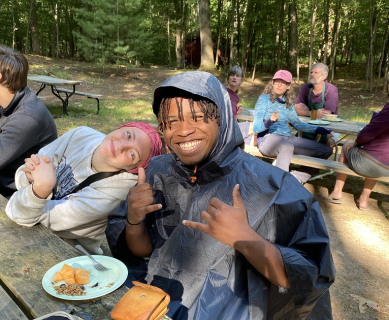 But what can parents do with our kids instead? The answer is simple, though not easy to carry out: We can teach them (and perhaps relearn ourselves) the value of unstructured time and greater civic participation.
But what can parents do with our kids instead? The answer is simple, though not easy to carry out: We can teach them (and perhaps relearn ourselves) the value of unstructured time and greater civic participation.
This does not mean we should quit our day jobs and devote ourselves instead to endless hours of building forts and playing games. Exposing children to sports, music, art, programming or dance certainly has benefits — including physical exercise, intellectual stimulation and fun — but there are also good reasons to give children time to be bored. Not least of these is it forces them to figure out a way to entertain themselves.
For many kids today, scheduled time and down time on their screens are the only states of being. Paradoxically, scheduled unstructured time could address this. Cooking, reading a book, art projects and neighborhood walks are unlikely to completely replace screens, but routinizing blocks of time for these self-sustaining activities each day or several times a week could introduce children and teenagers to new pleasures, and at the very least invite calmness.
Gen Z acutely feels the pressure to be accomplished at a younger age. As kids take on a wider range of challenging activities younger, a trend that began with millennials but has grown to steroidal levels, the criteria for standing out in the college admissions process have shot up accordingly. It’s no wonder kids are stressed out.
The Slacker Generation, an initially disparaging label that Gen Xers have reclaimed, did not have to build a childhood résumé brimming with skills, expertise and accolades to get into college. Now many of these former slackers are parents worried about whether their kids are doing enough to stay competitive in college admissions and the job market. Those who can afford it feel pressure to pad their kids’ résumés as much as they can. A 2019 survey found that more than a quarter of “sports parents” spent upward of $500 per month, with some spending over $1,000 and jeopardizing their retirement savings.
But it’s clear by now that all this expensive enrichment won’t ensure kids’ success. Despite middle- and upper-class millennials mortgaging their childhood to get into college and then toiling through early adulthood in unpaid internships, they are unable to acquire the levels of economic and social security still held by their baby boomer parents.
Perhaps that’s why Gen Z has shown astute awareness of the dangers of overwork, with some high-profile Zoomers demonstrating acts of radical self-preservation. The Gen Z tennis star Naomi Osaka, for example, recently chose to prioritize her well-being over her career’s demands when she dropped out of the French Open after officials fined her for declining to participate in its post-match news conferences. Gen Z seems to have accepted that no matter how much you love your job, your job won’t love you back. Their parents — Gen Xers and even older millennials — were late to this lesson, and if they learned it at all, it was often only when they hit a wall with burnout.
 Of course, preparing children for college and the job market is not the only goal of parents shelling out for guitar lessons or robot-making labs. Parents are also eager to expose their children to different ways of using their minds and bodies in the hope that they’ll discover passions that could become vocations, or simply lifelong joys. One passion that’s worth trying to instill is civic participation.
Of course, preparing children for college and the job market is not the only goal of parents shelling out for guitar lessons or robot-making labs. Parents are also eager to expose their children to different ways of using their minds and bodies in the hope that they’ll discover passions that could become vocations, or simply lifelong joys. One passion that’s worth trying to instill is civic participation.
As parents, we can reinforce the importance of caring beyond one’s own success. Taking your kids to volunteer or to protest injustices they see in the world are good ways to show them what it looks like to give back and replenish. The human and nonhuman connections they will make at food pantries and animal shelters can help kids cultivate empathy — itself a valuable skill for navigating life — while offsetting the anxiety footprint caused by today’s inflated standards for success.
It might feel counterintuitive to deny your children the leg up in life that many extracurriculars promise, but it’s worth examining that impulse too. The pandemic has exacerbated existing socioeconomic disparities, especially along racial lines. With widening wealth gaps, there will be even fewer opportunities to prioritize extracurricular activities for low-income kids. Rethinking the value of a packed calendar offers a concrete opportunity to narrow the racial and economic gaps between privileged and underprivileged kids.
Replacing video games with nature walks might not make you the most popular parent. Your kids may complain a little (or a lot) about losing some of their organized fun, since boredom is a feeling they’ve rarely experienced. But they’ll figure it out.
Harvard Supports: Education Should Be Joyful
Research from Harvard Graduate School of Education emphasizes the importance of making education joyful. Compared with high-pressure, high-stakes, testing-driven environments, students retain more and process better in happy, lower-stress environments. In Waldorf Education, our intentional approach prioritizes engaged, enthusiastic learning and our teachers bring joy to every lesson, instilling a deep understanding of each subject and a lifelong love of learning.
This is an excerpt. The full article was originally published by Lory Hough in the Harvard Ed. Magazine https://www.gse.harvard.edu/ideas/ed-magazine/22/05/space-joy
Is learning even meant to be joyful?
Anyone who has picked up an instrument or tried to learn a new language knows that learning can be hard and frustrating. As Irby pointed out, “Learning is not always a joyous undertaking. Pushing through a difficult subject, topic, or painstaking assignment can be tough.”
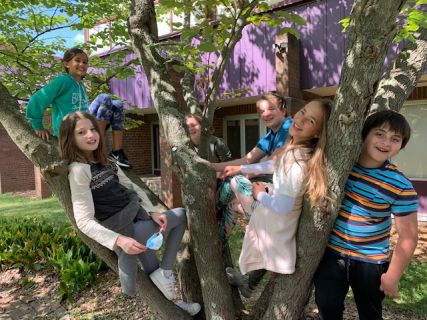 But, he adds, “joy at school and in learning is a foundation from which students gain the confidence that academic struggle is temporary and worthwhile.” There’s also a very real connection to the brain. “The brain does not exist by itself,” writes Professor Jack Shonkoff, director of the Center on the Developing Child. “Connecting the brain to the rest of the body is critically important. When we’re stressed, every cell in the body is working overtime.”
But, he adds, “joy at school and in learning is a foundation from which students gain the confidence that academic struggle is temporary and worthwhile.” There’s also a very real connection to the brain. “The brain does not exist by itself,” writes Professor Jack Shonkoff, director of the Center on the Developing Child. “Connecting the brain to the rest of the body is critically important. When we’re stressed, every cell in the body is working overtime.”
Students who appear joyless or unmotivated may not be making voluntary choices, says Judy Willis, a neurologist who went on to teach middle school for 10 years. Their brains, as Shonkoff points out, may just be responding to what’s going on around them, like the ups and downs of the pandemic and our push to “catch up” academically in schools.
“The truth is that when we scrub joy and comfort from the classroom, we distance our students from effective information processing and long-term memory storage,” Willis recently wrote in the Neuroscience of Joyful Education. “Instead of taking pleasure from learning, students become bored, anxious, and anything but engaged. They ultimately learn to feel bad about school and lose the joy they once felt.” Neuroimaging studies and measurement of brain chemical transmitters reveal that “when students are engaged and motivated and feel minimal stress, information flows freely through the affective filter in the amygdala and they achieve higher levels of cognition, make connections, and experience ‘aha’ moments. Such learning comes not from quiet classrooms and directed lectures, but from classrooms with an atmosphere of exuberant discovery.”
Irby saw this with his own children. When school went remote, they were not happy. “On the best days, they were ambivalent. On the bad days, they were miserable,” he says. When they returned to in-person learning this past fall, things mostly got better. His son, a first-grader, didn’t like people being too close and didn’t want to be overly corrected for his efforts, but “they were very happy to return to school. They loved almost everything about returning, from packing their book bags, seeing their friends and socializing, to developing relationships with their teachers.”
Happy is great, but what about the important idea that we need to regain academic ground lost during the pandemic? As Professor Tom Kane and his colleagues at the Center for Education Policy Research at Harvard University (CEPR) reveal in their new Road to COVID Recovery project, using real-time data and working with school districts across the country, learning loss from the pandemic is significant.
“I don’t think there’s a broad appreciation for the magnitude of the declines we’ve seen,” Kane told Ed. — the equivalent of kids missing three or four months of school last year. As he said in a recent The 74 article, “School districts have never had so many students so far behind.” And especially for some students. The Brookings Institute reported in March that test-score gaps between students in low-poverty and high-poverty elementary schools grew by approximately 20% in math and 15% in reading, primarily during the 2020–21 school year.
CEPR has called for tutoring, extra periods of instruction, Saturday academies, and afterschool programs. Schools, they say, should focus for the next couple of years on getting students back to pre-COVID academic levels.
But what does catch up mean for the joy that tired students and teachers also desperately need?
In a Harvard EdCast interview in February (2022), Susan Engel, a senior lecturer at Williams College and author of the new book, The Intellectual Lives of Children, said, “I heard a first-grade teacher say to me, back in August, when she was planning her remote teaching, she said, ‘The parents are so worried that their children aren’t going to keep up this year.’ And I said, ‘Keep up with what?’ And she looked surprised, and she said, ‘Well, with the standards.’ But I mean, the standards are completely arbitrary. Who made up those standards? Just a lot of people sitting in rooms. I don’t know. And I’m not sure they were good standards in the first place, but it’s silly to let those constrain you too much as a teacher right now.”
Which is why it was interesting, says Wade Whitehead, a fifth-grade teacher in Virginia now in his 28th year of teaching, that in the spring of 2020, when it became clear that we weren’t going back to in-person any time soon, “the first two things we threw out the window were grades and standardized testing.”
Why was that, he wondered? “I think it’s because those two rob students and teachers of joy. I think it was to keep students and teachers happy” as we shifted focus to everyone’s crushing social-emotional (SEL) needs. And there were other changes that at any other time would have seemed radical: Schools shortened the school day and cut back to just a few class blocks a day. “COVID was an opportunity for schools to go deep. People had the freedom to just learn. If you want to be around someone who is happy, be around someone who’s just learning something to learn, especially face-to-face. You’re just happier that way.”
Unfortunately, says Whitehead, a Certificate in School Management and Leadership graduate, a year later, we “picked up those two apples” — grades and standardized tests — “and put them back in the cart. I’m not against grades or tests. I’m for amazing grading systems and amazing assessment and accountability systems.”
Durney agrees that the “normal” way of schooling wasn’t working for everyone and says that we can still rethink schooling.
“We need to use the pandemic as an opportunity to consider how we meet the needs of all our students through engaging tasks,” he says. “Students have access to apps, games, etc., and there are things that can and should be leveraged when designing learning opportunities. It isn’t just academics that students missed over the past two years. They need opportunities to engage in activities that allow them to build and strengthen their SEL skills. Rigor can and should be fun!”
Kane agrees and says that academics and emotional care go hand-in-hand. If students feel more comfortable being back in school, they are going to have an easier time focusing, just as finding success in the classroom can lead to positive effects on mental health.
Irby also says it’s not an either-or as we move forward.
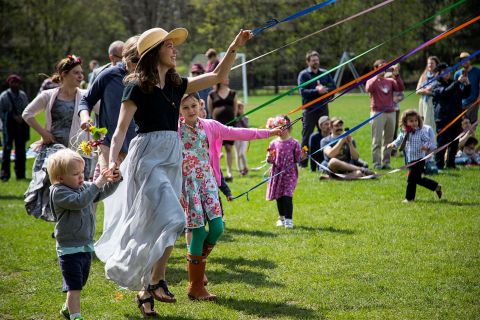 “I would say to educators who want to prioritize getting kids up to speed academically over joy that the two are not mutually exclusive. They should think about them as mutually reinforcing,” he says. “Not only do joy and academic rigor go hand in hand, but tactful educators plan to ensure both happen in tandem.” He noted that Gholdy Muhammad’s framework outlined in her book Cultivating Genius includes five pillars to consider when planning lessons, and joy is one of them. “An example is children’s museums, which offer learning opportunities that center play and fun. Exhibit curators plan with joy and excitement at the center of their learning design, but they don’t forgo academic content. In other words, the same way a teacher can plan to have students learn a disciplinary skill, they can plan for students to experience joy while doing it. One priority doesn’t need to outweigh the other.”
“I would say to educators who want to prioritize getting kids up to speed academically over joy that the two are not mutually exclusive. They should think about them as mutually reinforcing,” he says. “Not only do joy and academic rigor go hand in hand, but tactful educators plan to ensure both happen in tandem.” He noted that Gholdy Muhammad’s framework outlined in her book Cultivating Genius includes five pillars to consider when planning lessons, and joy is one of them. “An example is children’s museums, which offer learning opportunities that center play and fun. Exhibit curators plan with joy and excitement at the center of their learning design, but they don’t forgo academic content. In other words, the same way a teacher can plan to have students learn a disciplinary skill, they can plan for students to experience joy while doing it. One priority doesn’t need to outweigh the other.”
He says this is especially important for students who experience “compounding killjoys” — students who “live with circumstances and experiences that make it very difficult to be joyful. Some big picture joy killers include poverty, racism, social isolation, and concrete realities that stem from racial, social, and economic injustice such as hunger and food insecurity, housing insecurity, exposure to violence, health ailments, and living in a household or community where adults experience chronic stress. The more of these killjoys that students experience, the more concerned educators should be about using learning as a means to cultivate joy.”
For example, he says that if students don’t have access to safe green space, recess should become a priority. If they experience conflict with relationships in their lives, educators can create learning scenarios that are collaborative, “which provide opportunities to find joy in working with people.”
Keeping this in mind, Sandra Nagy, Ed.M.’02, managing director of Future Design School, says any effort to get kids caught up and still feel joy needs to be intentional.
“In order for this important change to take hold in schools, there needs to be a space for joy,” she says. “That means balancing efforts to address learning loss with looking ahead to what we can do next and celebrating the way teachers proved their ability to innovate and adapt in the past two years.”
And Brooks says we can do something else to bring back joy that would once have been considered radical: We can slow down.
“We can engage with students where they are, whatever they’re interested in at the moment, because that’s the ‘stuff’ of the world they’re trying so hard to build normalcy from,” he says. “We can play with them on the field and court and laugh with them throughout the day. There will still be time for all that needs to be learned.”
Is joy still below the surface?
It’s all important — and it’s not all doom and gloom. Even tired educators say that below the frustrations, they see joy again.
“Given the circumstances, I have seen a lot of joy at school,” says Durney. “One of the many benefits of working with elementary-aged children is that they can find joy and humor in just about any activity.” Right before winter break, for example, they held an outdoor schoolwide activity where students were able to share their work and play games created by their peers and with parent involvement. “It felt like pre-pandemic times where we’d gather as a whole school community. The day ended with our principal jumping into the frigid waters at the M Street Beach in South Boston because as a school community we exceeded our fundraising goal. The smiles and laughter throughout the entire day were a great way to end the first stretch of the school year.”
Salch addressed burnout when students — and teachers — stopped using a diagnostic online program by creating a challenge where students would earn a popcorn party if they logged in for 10 of 15 days in December.
“We have a local chocolate factory that sells 10-gallon bags of popcorn for $6. We can feed a whole school for less than $15,” she says. “Students that earned the reward came out to the courtyard to eat a coffee filter full of popcorn and dance to Kidz Bop.”
She celebrates her teachers, too — even in small ways. “I do everything I can to keep my teachers joyful,” she says. “I write handwritten notes to them monthly thanking them or congratulating them on something they accomplished. I give random gifts of pens or stickies to show appreciation. I organize themed meetings that included engaging activities that show each other we are humans before we are our professions.”
Joshua Neufeld, a first-grade teacher at the American International School of Guangzhou in China and a participant in a Project Zero program in 2021, is part of a peer coaching network for international teachers called Positivity Playground. He found that regular staff socializing has helped morale.
“The pandemic has been challenging for everyone, and Positivity Playground reminded me that together, as colleagues, we can generate more positive emotions and manage negative emotions effectively.” With this in mind, Neufeld organized a weekly lunchtime tea party for his colleagues called Positvi-Tea. It’s a time for teachers to hang out and talk, he says, often about things other than school. “This is a time that energizes the participants and challenges them to continue the day with a positive outlook. I leave the meetings feeling recharged, viewing upcoming situations with a sense of realistic optimism.”
Beyond celebrations and gatherings, others say a focus on personalized learning and setting small, actionable steps (not just big lofty goals) can help bring joy back. Brooks says teachers and other educators can also pay more attention to self-care.
“I am striking a better work-life balance, taking time to be with my family and recharge,” he says. “Doing so allows me to be more fully present and increases the likelihood of finding and making joyful moments at work.” The same needs to be done for all educators. “It does not take anything extraordinary to bring joy back to the workplace of teachers. I would argue it comes down to acknowledging the difficulty of the work in these times, commiserating openly and honestly about these challenges, facing them together, and celebrating every small success of the professionals in the building. Impromptu conversations, dropping by to check in, and showing gratitude are a few other easy and regular ways to bring a sense of joy back to the workplace on a daily basis.”
With her ladybug stickers in hand and her joke book open and ready for the next meeting, Julia de la Torre is still tired, but she knows the joy at her school is there.
“Quite frankly, joy is the reason I come to work every day and why I love my job,” she says. “Pop your head into any classroom and you’ll see kids thriving, connecting, and enjoying school. They may have masks on, but you can see joy in their eyes and in their laughter. I’m always trying to remind my teachers that there is joy everywhere in schools, if you stop to look for it. It may be harder to find during these challenging times, but it’s the joy that keeps us coming back for more.”
A Balanced Education Promotes Resilience
Waldorf education is an intentionally balanced approach to teaching with the goal of graduating happy, healthy, and resilient young people. We interweave academics, artistic activities, movement and outdoor time in a way that reduces stress and enhances learning. We provide rhythm for each day, season and year, which builds confidence and ensures that students feel secure. Social-emotional learning and problem solving are integrated throughout our curriculum so children develop the skills they need to thrive. We are a community where students feel seen, recognized, and challenged to do their best work and be their best selves.
This post is based on the findings of Ann S. Masten and Andrew J. Barnes in their National Library of Medicine paper, Resilience in Children: Developmental Perspectives. Please refer to the full paper for all citations.
Evidence continues to accumulate on the short- and long-term risks to health and well-being posed by adverse life experiences in children, particularly when adversities are prolonged, cumulative, or occurring during sensitive periods in early neurobiological development. Recent national and global examples include the growing concern about the impact of disasters, war, poverty, pandemics, climate change, and associated displacement on the global well-being of children. This confluence of threats to the present and future health of children motivates us to look at resilience and the factors that can support its development.
Resilience in humans can be broadly defined as the capacity to adapt successfully to challenges that threaten the function, survival, or future development of the individual. Resilience is also a feature of complex adaptive systems, including human individuals, but also families, economies, ecosystems, and organizations. This definition can also be applied to systems within an individual, such as the human immune system.
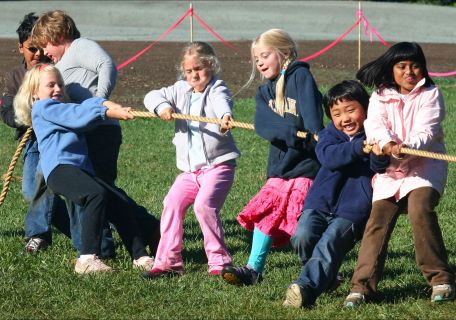
One of the most important implications of this definition is the idea that the resilience of a developing child is not circumscribed within the body and mind of that child. The capacity of an individual to adapt to challenges depends on their connections to other people and systems external to them through relationships and other processes. This includes their school environment and the relationships and experiences that are part of it.
For an individual person, resilience reflects all the adaptive capacity available at a given time in a given context that can be drawn upon to respond to current or future challenges facing the individual, through many different processes and connections. Resilience is not a trait, although individual differences in personality or cognitive skills clearly contribute to adaptive capacity. Supportive relationships play an enormous role in resilience across the lifespan. Close attachment bonds with a teacher or other caregiver and effective parenting can protect a young child in multiple ways that are not located “in the child”.
Human individuals have so much capacity for adaptation to adversity in part because their resilience depends on many interacting systems that co-evolved in biological and cultural evolution, conferring adaptive advantages. Moreover, children are often protected by multiple “back-up” systems, particularly embedded in their relationships with other people in their homes and communities.
Dose matters. Many studies of resilience have shown that the severity of exposure either to one extremely traumatic event or in the sense of cumulative risk, makes a difference. At the same time, these studies also show variation among individuals at similar levels of risk, some of whom are manifesting positive adaptation and development consistent with the presence of considerable resilience. In effect, these adaptive individuals are doing better than might be expected. These individuals motivated questions about how to account for their success and provided important clues for resilience science pertaining to the ongoing search for answers to the question of what makes a difference.
The shortlist of common resilience factors for child development shows that school environment can play an important role in helping children develop resilience, in particular the relationship development, teacher looping, intentional community, developmentally appropriate approach, and rhythms and rituals of a Waldorf education.
- Caring family, sensitive caregiving (nurturing family members)
- Close relationships, emotional security, belonging (family cohesion, belonging)
- Skilled parenting (skilled family management)
- Agency, motivation to adapt (active coping, mastery)Problem-solving skills, planning, executive function skills (collaborative problem-solving, family flexibility)
- Self-regulation skills, emotion regulation (co-regulation, balancing family needs)
- Self-efficacy, positive view of the self or identity (positive views of family and family identity)
- Hope, faith, optimism (hope, faith, optimism, positive family outlook)
- Meaning-making, belief life has meaning (coherence, family purpose, collective meaning-making)
- Routines and rituals (family routines and rituals, family role organization)
- Engagement in a well-functioning school
- Connections with well-functioning communities
An Education Where Kids Feel ‘Seen’
One of the best scientific predictors for how a child turns out in terms of happiness, academic success, and meaningful relationships is whether adults in their life consistently show up for them. Waldorf teachers strive to see and recognize each of their students, greeting them each morning individually, and working with them over multiple years to build on their unique strengths and meet their individual challenges so they can thrive.
This article was originally published by Daniel J. Siegel MD + Tina Payne Bryson PhD at https://ideas.ted.com/every-kid-needs-to-feel-seen-here-are-2-ways-you-can-do-this/
One way to set up a child for success: Take some time every day to really see them for who they are, not for who you want them to be.
Psychiatrist Daniel J. Siegel and Social worker Tina Payne Bryson.
One of the very best scientific predictors for how any child turns out — in terms of happiness, academic success, leadership skills, and meaningful relationships — is whether at least one adult in their life consistently shows up for them. And showing up doesn’t take a lot of time or energy, according to psychiatrist Daniel J. Siegel and social worker Tina Payne Bryson. Instead, it just requires acting in ways that ensure a child feels the Four S’s: Safe, Seen, Soothed and Secure. In this excerpt from their new book, The Power of Showing Up, Siegel and Bryson share two strategies that can make a child feel seen.
How good are you at seeing your kids? We mean really seeing them for who they are — perceiving them, making sense of them, and responding to them in timely and effective ways. This is how your child comes to experience the emotional sensation not only of belonging and of feeling felt, but also of being known.
Science suggests, and experience supports, that when we show up for our kids and give them the opportunity to be seen, they can learn how to see themselves with clarity and honesty. When we know our kids in a direct and truthful way, they learn to know themselves that way, too. Seeing our kids means that we ourselves need to learn how to perceive, make sense, and respond to them from a place of presence, to be open to who they actually are and who they are becoming, not who we’d like them to be and not filtered through our own fears or desires.
Take a moment and fast forward, in your mind, to the future when your child, now an adult, looks back and talks about whether he felt seen by you. Maybe he’s talking to a spouse, friend or therapist, someone they’d be brutally honest with. Perhaps he’s holding a cup of coffee, saying, “My mom, she wasn’t perfect, but I always knew she loved me just as I was.” Or, “My dad was always in my corner, even when I got in trouble.”
Would he say something like that? Or would he talk about how his parents always wanted him to be something he wasn’t, didn’t take the time to understand him, or wanted him to act in ways that weren’t authentic in order to play a particular role in the family or come across a certain way?
One of the worst ways we fail to see our children is to ignore their feelings. With a toddler, that might mean telling him, as he cries after falling down, “Don’t cry. You’re not hurt.” Or, an older child might feel genuinely anxious about attending the first meeting of a dance class. It’s unlikely she will feel more at ease if you say, “Don’t worry about it — there’s no reason to be nervous.”
Yes, we want to reassure our kids, and to be there for them to let them know they’ll be okay. But that’s far different from denying what they’re feeling, and explicitly telling them not to trust their emotions.
So instead, we want to simply see them. Notice what they’re experiencing, then be there for them and with them. We might say something like, “You’re going to be okay” or “Lots of people feel nervous on the first day. I’ll be there until you feel comfortable.”
When they feel felt and seen, it can create a sense of belonging as your child feels authentically known by you. She will also derive a sense of being both a “me” who is seen and respected and part of a “we”– something bigger than her solo self but that doesn’t require a compromise or the loss of her sense of being a unique individual. This is how seeing your child sets the foundation for future relationships where they can be an individual who is also a part of a connection.
What’s more, the empathy we communicate will be much more likely to create calm within our child. As is so often the case, when we show love and support, it makes life better not only for our child but for us as parents as well.
Strategy #1 for helping kids feel seen: Let curiosity lead you to take a deeper dive
A practical first step to helping our kids feel seen is just observe them — take the time to look at their behavior, discard preconceived ideas, and consider what’s really going on with. But really seeing them often requires more than just paying attention to what’s readily visible. Just as with adults, it’s often the case with children that there’s more going on beneath the surface than they let on. As parents, part of our responsibility is to dive deeper.
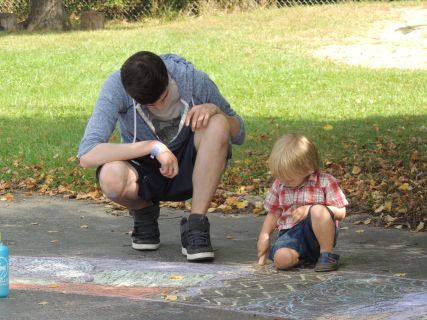
This curiosity is key. It’s one of the most important tools that a caring parent can use. When your toddler plays the “let’s push the plate of spaghetti off the high chair” game, your initial response might be frustration. If you assume he’s trying to press your buttons, you’ll respond accordingly. But if you look at his face and notice how fascinated he is by the splatter on the floor and the wall, you might feel and respond differently.
Cognitive scientists Alison Gopnik, Andrew Meltzoff and Patricia Kuhl have written about “the scientist in the crib,” explaining that a large percentage of what babies and young children do is part of an instinctual drive to learn and explore. If you can take a moment, pause and ask yourself, “I wonder why he did that?” If you see him as a young researcher who is gathering data as he explores this world, you can at the very least respond to his actions with intentionality and patience, even as you clean up his experiment.
We encourage parents to chase the “why” behind kids’ behavior. By asking “Why is my child doing that?” rather than immediately labeling an action as “bad behavior,” we’re much more likely to respond to the action for what it is. Sometimes it really may be a behavior that should be addressed. We believe that children definitely need boundaries, and it’s our job to teach them what’s okay and what’s not. But other times a child’s action may come from a developmentally typical place, in which case it should be responded to as such.
The same goes for other behaviors. If your child is quiet when she meets an adult and resists speaking up, she may not be refusing to be well mannered; she may be feeling shy or anxious. Again, that doesn’t mean you don’t teach her social skills along the way or encourage her to learn to speak in situations that are uncomfortable. It just means you want to see her for where she is right now. What are the feelings behind the behavior? Chase the why and examine the cause of her reticence; then you can respond more intentionally and effectively.
Strategy #2 for helping kids feel seen: Make space and time to look and learn
Much about seeing our kids is simply paying attention during the day, but it’s also about generating opportunities that allow your kids to show you who they are. Nighttime can be a great time to do this. There’s something about the end of the day, when the home gets quiet and the body feels tired, when distractions drop away and defenses are down, that makes us more apt to talk about our thoughts and memories, our fears and desires. This goes for all of us, adults and kids.
 What’s required is a bit of effort and planning in terms of the family schedule. Kids need an adequate amount of sleep — we can’t stress that enough — so ideally you’ll begin bedtime early enough to make time for your usual routine plus a few minutes of chat or quiet waiting time to allow your children to talk if they are inclined. They might share details of their day or ask questions that help you gain a fuller understanding of what’s going on in their worlds — actual or imaginary.
What’s required is a bit of effort and planning in terms of the family schedule. Kids need an adequate amount of sleep — we can’t stress that enough — so ideally you’ll begin bedtime early enough to make time for your usual routine plus a few minutes of chat or quiet waiting time to allow your children to talk if they are inclined. They might share details of their day or ask questions that help you gain a fuller understanding of what’s going on in their worlds — actual or imaginary.
We know what some of you are thinking: “I don’t have one of those kids who willingly shares what they’re thinking and feeling.” We get it. The answer to the “How was your day” question seems to inevitably lead to the dreaded “Fine.” Imagining a chat time added to your child’s bedtime routine may produce the unpleasant image of you and your child silently lying next to each other, both of you waiting for something important to be shared.
We understand this concern. Keep in mind that the idea isn’t that every evening you’ll hear some earth-shattering revelation or deep exchange. That’s not realistic between adults, much less with kids. What’s more, it’s not the goal. The ultimate aim is to be present to your children — to create space and time to get to know them better and to understand them at a deeper level so you can help them grow into the fullness of who they are.
If you have a child who doesn’t eagerly share their inner thoughts, then you may need to ask more specific questions or pose ethical dilemmas you can consider together. The more you see and know your child, the easier this will become. At times, of course, silence is okay too. Being quiet together, simply breathing, can be intimate and connecting. So don’t feel pressure to force conversation when it’s not the right time.
We know it can be confusing, trying to determine what to say when and whether to encourage conversation or let things be quiet. But one of the best ways to see your kids — and to help them feel seen — is to create the space and time that cultivate opportunities for that kind of vision to take place.
Waldorf Education Provides A Foundation for Success
Many employers seek specific skills in their potential employees, such as leadership, effective communication, adaptability, teamwork, and creative problem-solving. Waldorf Education stands out in preparing children with these crucial skills through a hands-on, experiential curriculum that covers a wide range of academics and arts. This approach helps students become confident, creative, adaptable, and able to connect well with others. Waldorf Education doesn't solely prepare graduates for higher education; it equips them for success in any career they choose.
According to Indeed.com's Career Guide, while there are particular skills needed for each industry and job, there are also core competencies that span across all professions. These are considered key employability skills and are many of the same skills cultivated in Waldorf classrooms from kindergarten through high school.
This video was originally published on the Indeed Career Guide. Click here for the full articleTop 11 Skills Employers Look for in Job Candidates.
Adaptability Quotient: Educating for an Uncertain Future
With increasingly rapid changes in the nature of work, employers are interested not just in intelligence and social skills, but in an employee’s adaptability quotient–their ability to adjust to new challenges with flexibility, curiosity, courage, resilience, and problem-solving skills. In Waldorf education, we deepen rigorous academics by integrating art, outdoor education, music, theater, practical work, movement and hands-on learning. The depth and breadth of the Waldorf curriculum challenges students and develops crucial capacities that will help them adapt and thrive throughout their lives.
.jpg/Surpassing_Stem(1)__600x450.jpg)
This article was originally published Seb Murray on BBC.com
As workplaces change, is it enough to be smart? Enter AQ, the capacity to adapt that may well determine your future career success.
Once, if you wanted to assess how well someone might do climbing the career ladder, you might have considered asking them to take an IQ test. For years, it was thought that the intelligence quotient (IQ) test – which measures memory, analytical thinking and mathematical ability – was one of the best ways to predict our future job prospects.
 More recently, there has been increased attention on emotional intelligence (EQ), broadly characterized as a set of interpersonal, self-regulation and communication skills. EQ is now widely seen as a tool kit that plays an important role in helping us succeed in multiple aspects of life. Both IQ and EQ are considered important to our career success. But today, as technology redefines how we work, the skills we need to thrive in the job market are evolving too. Enter adaptability quotient, or AQ, a subjective set of qualities loosely defined as the ability to pivot and flourish in an environment of fast and frequent change.
More recently, there has been increased attention on emotional intelligence (EQ), broadly characterized as a set of interpersonal, self-regulation and communication skills. EQ is now widely seen as a tool kit that plays an important role in helping us succeed in multiple aspects of life. Both IQ and EQ are considered important to our career success. But today, as technology redefines how we work, the skills we need to thrive in the job market are evolving too. Enter adaptability quotient, or AQ, a subjective set of qualities loosely defined as the ability to pivot and flourish in an environment of fast and frequent change.
“IQ is the minimum you need to get a job, but AQ is how you will be successful over time,” says Natalie Fratto, a New York-based vice-president at Goldman Sachs who became interested in AQ when she was investing in tech start-ups. She has subsequently presented a popular TED talk on the subject. Fratto says AQ is not just the capacity to absorb new information, but the ability to work out what is relevant, to unlearn obsolete knowledge, overcome challenges, and to make a conscious effort to change. AQ involves flexibility, curiosity, courage, resilience and problem-solving skills too.
Amy Edmondson, a professor of leadership and management at Harvard Business School, says it is the breakneck speed of workplace change that will make AQ more valuable than IQ. Technology has vastly changed how many jobs are done, and the disruption will continue – over the next three years, 120 million people in the world’s 12 largest economies may need to be reskilled because of automation, according to a 2019 IBM study.
Any roles that involve spotting patterns in data – lawyers reviewing legal documents or doctors making a patient diagnosis, for example – are easy to automate, says Dave Coplin, CEO of The Envisioners, a UK-based technology consultancy. This is because an algorithm can do these tasks faster and more accurately than a human, he says. To avoid obsolescence, workers doing these jobs need to develop new skills like creativity to solve new problems, empathy to communicate better and accountability, using human intuition to supplement insight from machines. “If an algo can do 30% of the tasks that I used to do, what can I do with that spare capacity? The winners are those who choose to do things that algos can’t.”
 Edmondson says every profession will require adaptability and flexibility, from banking to the arts. Say you are an accountant. Your IQ gets you through the examinations to become qualified, then your EQ helps you connect with an interviewer, land a job and develop relationships with clients and colleagues. Then, when systems change or aspects of work are automated, you need AQ to accommodate this innovation and adapt to new ways of performing your role.
Edmondson says every profession will require adaptability and flexibility, from banking to the arts. Say you are an accountant. Your IQ gets you through the examinations to become qualified, then your EQ helps you connect with an interviewer, land a job and develop relationships with clients and colleagues. Then, when systems change or aspects of work are automated, you need AQ to accommodate this innovation and adapt to new ways of performing your role.
All three quotients are somewhat complementary, since they all help you to solve problems and therefore adapt, Edmondson says. An ideal candidate possesses all three, but not everyone does. “There are rigid geniuses,” she says. Having IQ, but no AQ would leave you struggling to embrace new ways of working using your existing skills – and low AQ makes it harder to acquire new ones.
AQ is now increasingly being sought at the hiring level. According to the IBM study, 5,670 executives globally rated behavioral skills as most critical for the workforce today, and chief among them was the “willingness to be flexible, agile and adaptable to change”. Will Gosling, Deloitte’s UK human capital consulting leader, says there’s no definitive method of measuring adaptability like an IQ test, but companies have woken up to AQ’s value and are changing their recruitment processes to help identify people who may be high in it.
Deloitte has started using immersive online simulations where job candidates are assessed on how well they adapt to potential workplace challenges; one assessment involves choosing how you would encourage reluctant colleagues to join a company triathlon team. Deloitte also looks to hire people who have shown they can perform in different functions, industries or geographies. “This proves they are agile and a fast learner,” Gosling says.
Fratto of Goldman Sachs, meanwhile, suggests three ways AQ might manifest in potential candidates: if they can picture possible versions of the future by asking “what if” questions, if they can unlearn information to challenge presumptions and if they enjoy exploration or seeking out new experiences.
She says this is not a definitive recipe for AQ, but recruiters should pose these kinds of questions to tease out evidence of AQ in candidates. In fact, she puts them to founders of start-ups seeking her investment.“Start-ups go through evolutions,” she explains. “It’s not like the founder has a written job description; they need some of a fluctuating list of 30 or 50 skills to be successful.”
One good thing about AQ is that – even if you can’t measure it – experts say you can work to develop it. Penny Locaso, the Australian founder ofBKindred, an education companythat helps people to become more adaptable, says some people have more curious or courageous personalities, which may explain why they are naturally better at adapting than others. “However, if one does not continue to surf the edge of their discomfort, the adaptability you are born with could decrease over time.”
She suggests three ways to boost your adaptability: first, limit distractions and learn to focus so you can determine what adaptations to make. Second, ask uncomfortable questions, like for a pay rise, to develop courage and normalize fear. Third, be curious about things that fascinate you by having more conversations rather than Googling the answer, something “which wires our brains to be lazy” and diminishes our ability to solve difficult challenges.
Otto Scharmer, a senior lecturer at the MIT Sloan School of Management who has written books on learning from the emerging future, suggests other methods. In a TED talk, he recommends remaining open to new possibilities, trying to see a situation through someone else’s eyes and reducing your ego so that you can feel comfortable with the unknown.
One thing we do know is that the workplaces of the future will operate differently. We may not all be comfortable with the pace of change – but we can prepare. As Edmondson says: “Learning to learn is mission critical. The ability to learn, change, grow, experiment will become far more important than subject expertise.”
Theater Develops Creativity, Empathy and Confidence
The performing arts help children develop a range of beneficial life skills, such as quick thinking, problem solving, and building self confidence. Theater strengthens empathy by asking a child to embody what their character is feeling and experiencing, and putting on a play also requires students to work as a team. In Waldorf education, students are involved in class plays and musical performances every year. We see the wide-ranging positive impact on our students and the powerful boost to their self confidence that the performing arts provide.

This article was originally written by Julia Savacool and published by Scolastic.com
It’s no big secret that getting kids involved in the performing arts can have major payoffs in school. After all, research shows that children who sing/dance/act/play their little hearts out are four times more likely to be recognized for academic achievement compared with their non-performing friends — and they tend to have enhanced cognitive, motor, and social development to boot. But the benefits don’t end there. Getting up on stage can enrich your child’s life in all sorts of surprising ways.
Kids Who Perform Are Quick Thinkers
Whether you’re a kid or an adult, the ability to stay calm and carry on is what keeps a small blooper from mushrooming into a major one. “When something goes wrong during a show, kids learn to improvise,” says Brian Olkowski, a 4th- and 5th- grade teacher in San Ramon, CA, and director of the school’s drama club. “One of the best things kids discover is how to think on their feet.” No performance is ever perfect, says Olkowski, so the real skill is learning to minimize errors and get back on track. “When someone flubs a line, the other kids learn how to cover for him,” he says. “I tell them it’s not about never making a mistake; it’s about never letting the audience see your mistake. Those are great skills that transfer to the classroom setting as well, whether it’s giving a presentation in front of peers or being called on to answer questions.”
Still, it helps to prepare your child for the possibility of problems cropping up, says Lisa Lollar, Psy.D., a psychologist in Denver, CO, who works with performing artists. “Talk about what she might do if she drops her music or forgets a line,” says Lollar. “Working through the scenarios in advance and coming up with a solution will help her feel prepared if something surprising happens.” The ability to expect the unexpected — and then roll with it — will give your child confidence any time she tests new waters. Lollar adds: “If you help your child define success as being willing to try something new, the idea of messing up isn’t so scary.”
They Master Their Anxiety
.jpg/2022%20Grade%2010%20Greek%20Play_Moment(3)__329x320.jpg) Let’s face it: Even grown-ups get nervous when we have to speak in front of our colleagues or give a presentation to the boss. Learning from an early age how to cope with performance jitters gives kids a leg up in those big life moments. “The first step for a parent is to normalize a child’s feelings of anxiety,” says Lollar. “Tell them, ‘You know, a lot of kids — and even adults — feel nervous before a performance. It’s completely natural.’” It won’t take away the nerves, but it will let your child know there’s nothing wrong with feeling this way.
Let’s face it: Even grown-ups get nervous when we have to speak in front of our colleagues or give a presentation to the boss. Learning from an early age how to cope with performance jitters gives kids a leg up in those big life moments. “The first step for a parent is to normalize a child’s feelings of anxiety,” says Lollar. “Tell them, ‘You know, a lot of kids — and even adults — feel nervous before a performance. It’s completely natural.’” It won’t take away the nerves, but it will let your child know there’s nothing wrong with feeling this way.
Then before the big show, talk your child through his worries by reminding him of other moments when he’s felt anxious, even when things turned out well. “Remind him of the baseball game when he felt really nervous at the plate, but managed to get a great hit,” suggests Lollar. “Recalling past experiences with positive outcomes gives a child confidence.” Other tricks: Help your child calm his body in the minutes before the performance begins by taking four or five long, deep breaths or counting backward from seven. Both force his mind to focus on something other than his nerves.
Once the show is over, let your child bask in his accomplishment, then casually comment on how well everything went. He will carry this experience with him for the next time, as more evidence that he can successfully perform under pressure.
Performers Express Brand-New Emotions
 One of the wonderful things about being in a play is that for a short period of time, you get to become someone else. For a child who struggles to talk about her feelings, there is a tremendous relief in disappearing behind a character and using it as an intermediary through which to open up. “It is a very safe way for kids to try out certain feelings — and take ownership of them — while playing the role of someone else,” says Olkowski, who also runs a summer theater program for children. “I’ve worked with shy kids who are able to blossom on stage and express themselves in a way they aren’t comfortable doing around their peers.”
One of the wonderful things about being in a play is that for a short period of time, you get to become someone else. For a child who struggles to talk about her feelings, there is a tremendous relief in disappearing behind a character and using it as an intermediary through which to open up. “It is a very safe way for kids to try out certain feelings — and take ownership of them — while playing the role of someone else,” says Olkowski, who also runs a summer theater program for children. “I’ve worked with shy kids who are able to blossom on stage and express themselves in a way they aren’t comfortable doing around their peers.”
Playing the role of someone else also teaches kids about empathy. “They learn to put themselves in someone else’s shoes,” says Jessica Hoffman Davis, author of Why Our Schools Need the Arts. “In performing the part of someone else, they learn what it’s like to think like that other person.”
Parents can also use a child’s theater performance to open a dialogue about sensitive issues. “Take the experience of a character in the play and tie it to your child’s situation,” says Lollar. “If your child is nervous about her first day of school, it helps to say, ‘Remember when you were in that play, and the character Lucy was scared? How did she handle it? What was she feeling? Did it work out OK for her?’ Drawing parallels to the character’s situation and her own will make your child more comfortable talking about her feelings.”
For kids who aren’t into acting, dance can offer another way to explore their interior world, says Annie Spell, Ph.D., a child psychologist in Lafayette, LA, and co-creator of Leap ’N Learn for the Classroom, a movement program for kids. “Dance teaches kids to think in a totally different way. You take the physiological experience of an emotion and assign it a corresponding movement instead of a word. It can be a powerful tool for kids who have trouble expressing themselves.”
Their Self-Esteem Can Soar
 There’s nothing quite like hearing a crowd of total strangers laugh at your joke or applaud your double pirouette to make you feel like a star. “Hearing the audience clap at the end of the show is an incredible feeling,” says Olkowski. “The kids are like, ‘Hey, this is for me!’ That instant positive feedback is really rewarding.”
There’s nothing quite like hearing a crowd of total strangers laugh at your joke or applaud your double pirouette to make you feel like a star. “Hearing the audience clap at the end of the show is an incredible feeling,” says Olkowski. “The kids are like, ‘Hey, this is for me!’ That instant positive feedback is really rewarding.”
But it’s more than just the ego boost from the fans — any type of performance requires teamwork to succeed. “Kids are introduced to the notion of an ensemble,” says Davis. “It’s not just you up on stage. You are responsible for a larger group that is counting on you to do your part so they can do theirs.” That weight of personal responsibility is rare in a child’s world, and successfully delivering his lines or hitting the right guitar chords means more because of what’s at stake.
“During a performance, kids become part of a larger system, working toward a common goal,” adds Spell. “It is the culmination of weeks of practice, so the performance itself becomes the reward for all that work.” Although a positive performance will give your child a self-esteem injection, it’s important to put the emphasis on effort, rather than results. “Every child will fail at some point,” notes Spell. “But if they judge themselves on putting their best effort forward and not on being perfect, the experience can still feel rewarding.”
Performers See the World in a Whole New Way
 At the end of the day, the transferable skills a child learns from performing may not be nearly as important as the experience of performing itself. “We’re always looking for ways the arts can benefit kids in other areas of life,” says Davis. “It’s as if art for art’s sake isn’t worth our time, when in fact, it gives kids an awareness about themselves and creative skills they’d never learn otherwise.” She may never apply the improvisation skills she learned during the school play to a math equation or turn her teamwork with other dancers into leadership on the school playground. But simply by having been part of the performance process, your child has been exposed to a new way of thinking and doing. And that alone is a success to be proud of.
At the end of the day, the transferable skills a child learns from performing may not be nearly as important as the experience of performing itself. “We’re always looking for ways the arts can benefit kids in other areas of life,” says Davis. “It’s as if art for art’s sake isn’t worth our time, when in fact, it gives kids an awareness about themselves and creative skills they’d never learn otherwise.” She may never apply the improvisation skills she learned during the school play to a math equation or turn her teamwork with other dancers into leadership on the school playground. But simply by having been part of the performance process, your child has been exposed to a new way of thinking and doing. And that alone is a success to be proud of.
